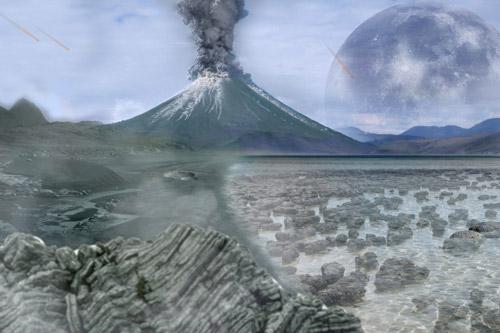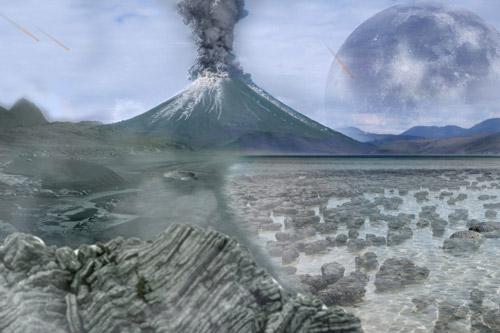
Credit: Tim Bertelink
A team of scientists led by the University of Bristol has provided new insights into the origins of the Archaea, the group of simple cellular organisms that are the ancestors of all complex life.
The Archaea are one of the Earth's most genetically and ecologically diverse groups of micro-organisms.
They thrive in a bewildering variety of habitats, from the familiar – soils and oceans – to the inhospitable and bizarre, such as the boiling acid pools of Yellowstone National Park.
The research provides a new evolutionary tree for the Archaea that will help to make sense of their biodiversity, and provides a new window into the early history of life on Earth that is not preserved in the fossil record. The work is published in PNAS.
With the development of new technologies for sequencing genomes directly from the environment, many new groups of Archaea have been discovered.
Dr Tom Williams from the School of Earth Sciences, said: "But while these genomes have greatly improved our understanding of the diversity of Archaea, they have so far failed to bring clarity to the evolutionary history of the group.
"This is because, like other micro-organisms, Archaea frequently obtain DNA from distantly related organisms by lateral gene transfer, which can greatly complicate the reconstruction of evolutionary history."
However, in their new work, Dr Williams and colleagues use a new statistical approach that combines information from thousands of genes found in many different archaeal genomes to show that events of lateral gene transfer can actually be used to orient the tree in time, resolving the deepest relationships in the evolutionary tree.
By determining which genes appeared first during the evolution of the Archaea, the new tree makes clear predictions about the basic biochemistry of the earliest Archaea, cells which may have lived over 3.5 billion years ago: these cells likely made energy using the Wood-Ljungdahl pathway, a biochemical pathway that today is found not only in Archaea but also in Bacteria, another major group of micro-organisms.
###
Paper: 'Integrative modelling of gene and genome evolution roots the archaeal tree of life' by T. Williams, G. Szollosi, A. Spang, T. Ettema, P. Foster, S. Heaps, T. Martin-Embley and B. Boussau in PNAS.
Media Contact
Shona East
[email protected]
44-117-928-8086
@BristolUni
http://www.bristol.ac.uk
############
Story Source: Materials provided by Scienmag





